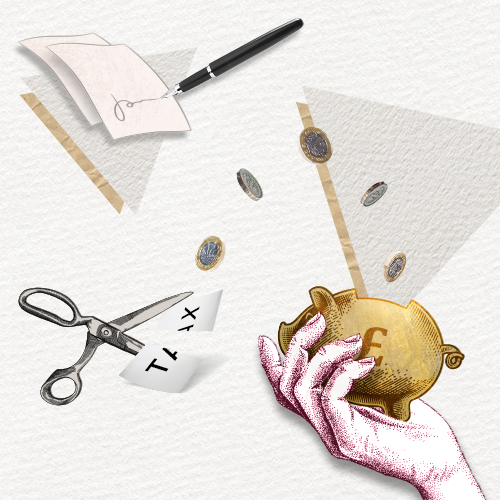Earn tax relief when selling your business
What you need to know
- Business owners can save up to £100,000 by claiming Business Asset Disposal Relief
- To successfully claim the relief you should start to prepare your finances well in advance of your expected sale date
- You must meet strict criteria on company ownership
- Rothschild & Co can connect you with a tax adviser to help you through the process

It can be easy to put off decisions until it’s too late. Entrepreneurs take great care in finding the optimal time to make business decisions, but often delay choices regarding their personal finances, even if this procrastination could cost them money.
In Charles Dickens’ 1850 novel David Copperfield, Mr Micawber famously said ‘never do tomorrow what you can do today. Procrastination is the thief of time. Collar him’.
This wisdom can apply to investment decisions and to the optimal use of tax reliefs.
Business Asset Disposal Relief (BADR) is a capital gains tax (CGT) relief, which can be particularly valuable for those selling shares in privately owned trading companies.
Taxpayers can save as much as £100,000 by making use of the relief. However, early consideration of the relief is critical. Here we provide an overview of the relief and the opportunities it can provide, particularly in the context of a company sale.
Rothschild & Co does not provide tax or legal advice and you should consult a tax adviser to determine if you may qualify for BADR or how you can best use the relief.
What is Business Asset Disposal Relief?
BADR is available to those selling all or part of a business, as long as they are a sole trader or business partner, or have owned shares in an unquoted trading company (the relief can extend to shares listed on AIM) for at least two years.
It was known as Entrepreneurs’ Relief until April 2020.1
When selling shares in a privately-held company, individuals can reduce the capital gains tax rate on £1 million of their sale proceeds to 10%, meaning a potential tax saving of £100,000. The £1 million relief is a lifetime allowance.2
BADR is available to those selling all or part of a business, as long as they are a sole trader or business partner, or have owned shares in an unquoted trading company for at least two years."
To qualify for BADR, an individual must hold at least 5% of the company’s ordinary shares and voting rights, be an employee or director, and have met the criteria for at least two years prior to selling. However, the employment can be part time and many shareholders provide shares to family members so that they too can benefit from BADR.
BADR is not given automatically. It must be claimed from HM Revenue & Customs (HMRC), normally via a tax return, and there are strict time limits for making a claim. HMRC does not tolerate procrastination.
What does BADR look like in practice?
There can be many reasons for wanting to sell or close a business, including retirement or to realise the wealth that has accumulated in the business. In many cases using BADR could result in a tax saving and generate enhanced funds for investment.
Imagine an entrepreneur called Georgina. She is the co-founder and CEO of an established machine learning start-up. Georgina has been approached by a major tech firm seeking to acquire her business for £50 million. She has agreed.
Georgina takes a modest salary, but the majority of her wealth is the 40% of the company’s shares she holds.
Georgina is a good candidate to qualify for BADR for a number of reasons:
- Her shares meet the 5% minimum threshold
- As CEO, she is on the company payroll
- The company is more than two years old
Georgina will therefore pay the reduced rate of 10% capital gains tax on the first £1 million she receives for her shares, provided she applies for the relief.
For families, the relief can be worth much more than £100,000. If Georgina’s children or spouse were to hold a stake in the company, they could also each benefit from up to £100,000 tax relief on sale. Georgina could give them an interest in her company without triggering a tax charge. All would qualify for BADR if they each owned at least 5% of the company and have done so for at least two years.
Although BADR can be an important relief, as with most tax reliefs it is subject to conditions. We normally recommend that a client has a ‘health check’ with a tax adviser, well in advance of a sale of shares, to ensure that the client will qualify for the relief.
Without such a check it’s easy to fall into one of the many traps. Here are some common ways Georgina could fail to qualify for BADR:
- If Georgina’s share allocation drops below 5%, she will not qualify (although there are relieving provisions if this was due to a commercial fundraising)
- The 5% threshold must be ‘ordinary’ shares, carrying rights to at least 5% of the proceeds from the sale of the business
- If Georgina doesn’t hold a role with the company – because of retirement, perhaps – she won’t qualify for BADR. At a minimum, she must be an employee (part-time or full-time) or a director
It’s also important to meet the requirement that a company is a ‘trading company’. Some entrepreneurs may find their business doesn’t meet this criteria, especially if it holds significant cash balances.

Do I qualify for BADR?
For those selling shares they must be either an employee or office holder of the company, and meet the following rules set out by HMRC.3
BADR is available to individuals who own at least 5% of the shares in an unquoted trading company. Stated like that, a shareholder might wonder why any tax advice is necessary. But HMRC has chosen specific – and not always obvious – definitions of terms such as ‘shares’ and ‘trading company’.
Full eligibility rules can be found on the HMRC website.
Consult a tax expert
The information on this page isn’t tax advice and shouldn't be relied on in that context. Individuals should speak to a tax adviser to ensure they meet the criteria needed to claim the relief.4
A tax adviser can ensure that the company and share structure qualifies for the relief and may suggest, for example, a transfer between spouses if both qualify for relief. An adviser’s role is also critical during the sale of the company, especially where the sale comprises both shares and cash.
Your Rothschild & Co Client Adviser can act as a sounding board on financial matters and can put you in touch with qualified tax advisers if you need further support.
Ready to begin your journey with us?
Past performance is not a guide to future performance and nothing in this article constitutes advice. Although the information and data herein are obtained from sources believed to be reliable, no representation or warranty, expressed or implied, is or will be made and, save in the case of fraud, no responsibility or liability is or will be accepted by Rothschild & Co Wealth Management UK Limited as to or in relation to the fairness, accuracy or completeness of this document or the information forming the basis of this document or for any reliance placed on this document by any person whatsoever. In particular, no representation or warranty is given as to the achievement or reasonableness of any future projections, targets, estimates or forecasts contained in this document. Furthermore, all opinions and data used in this document are subject to change without prior notice.





